thefishcenter ataglance




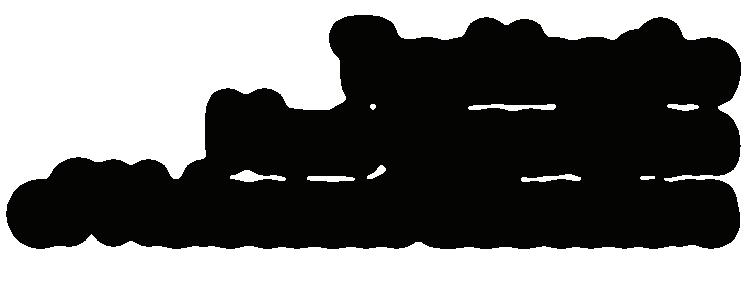
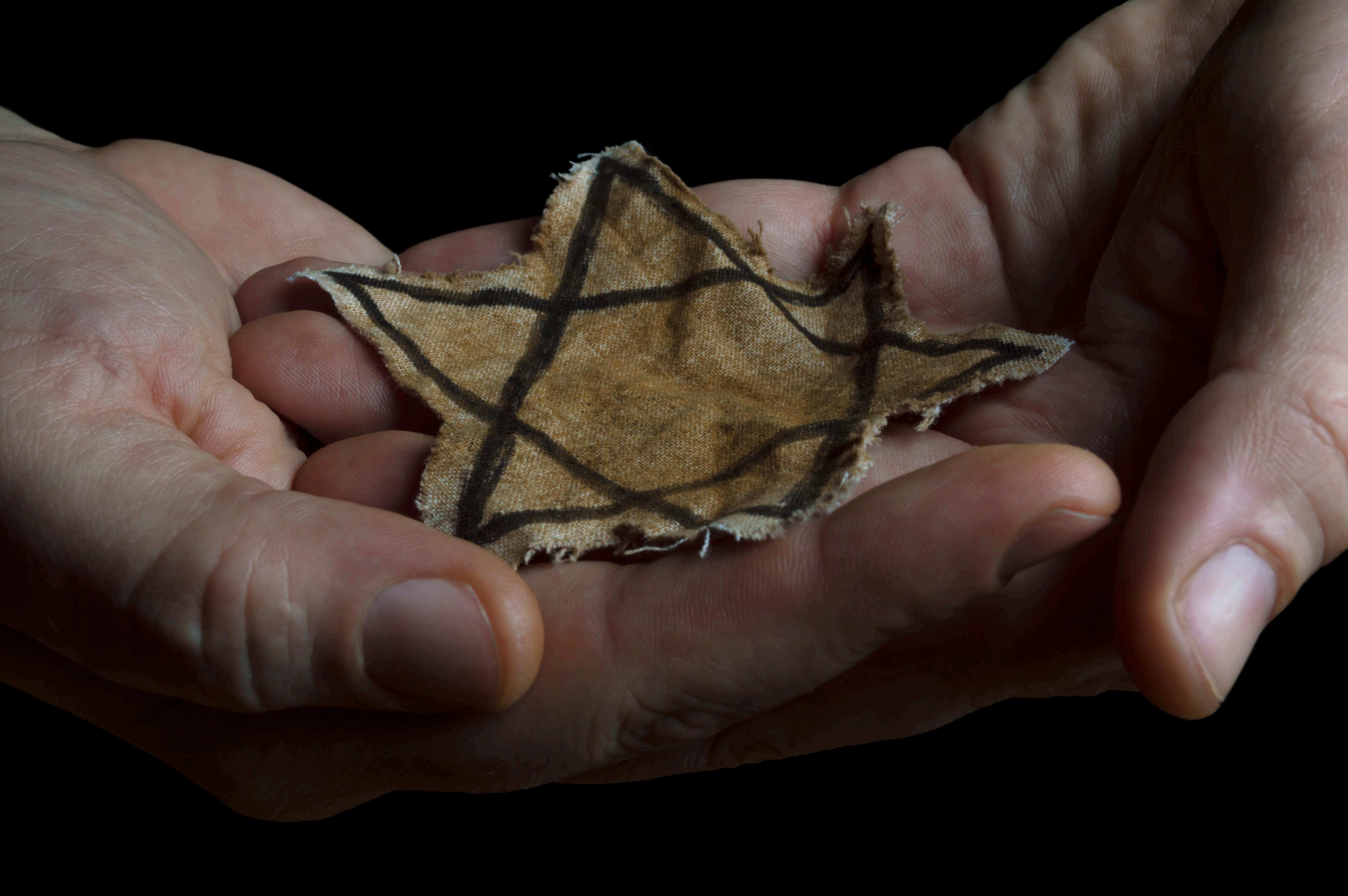
The Emil A. and Jenny Fish Center for Holocaust and Genocide Studies strives to build a cadre of professionals and lay leaders who are committed to Holocaust Education and Remembrance, and ready to meet the challenges that the field is facing. As survivors pass away and awareness of the subject in public memory fades, it is the responsibility of the next generations to explore, research and teach the history of the Holocaust and its lessons, confront Holocaust deniers and distorters, and combat antisemitism both in the U.S. and globally.

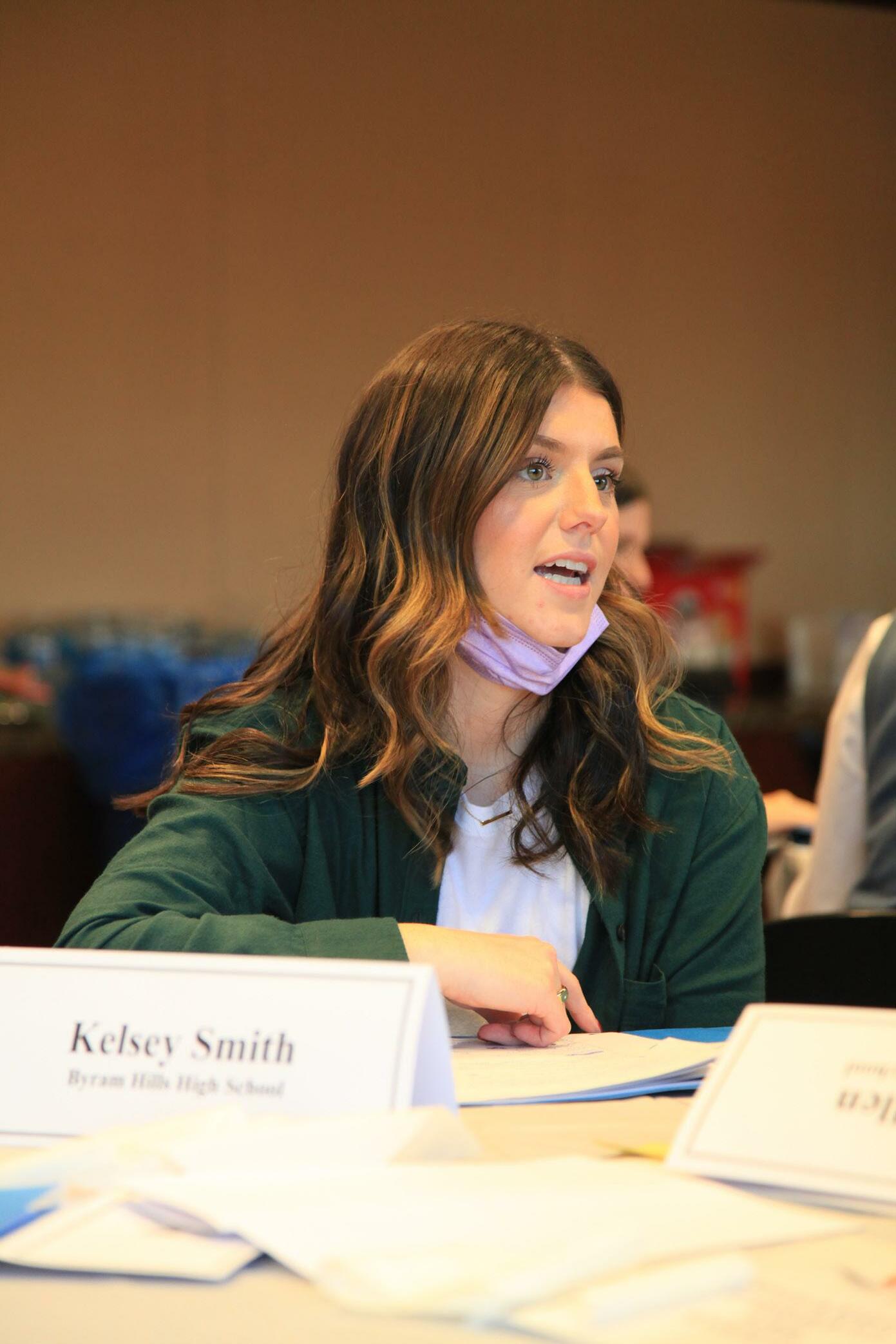
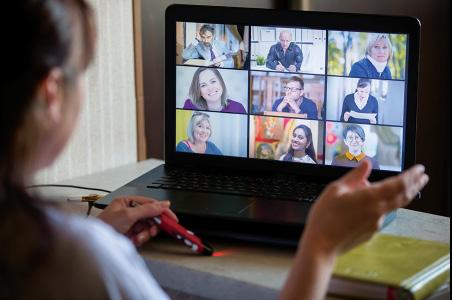
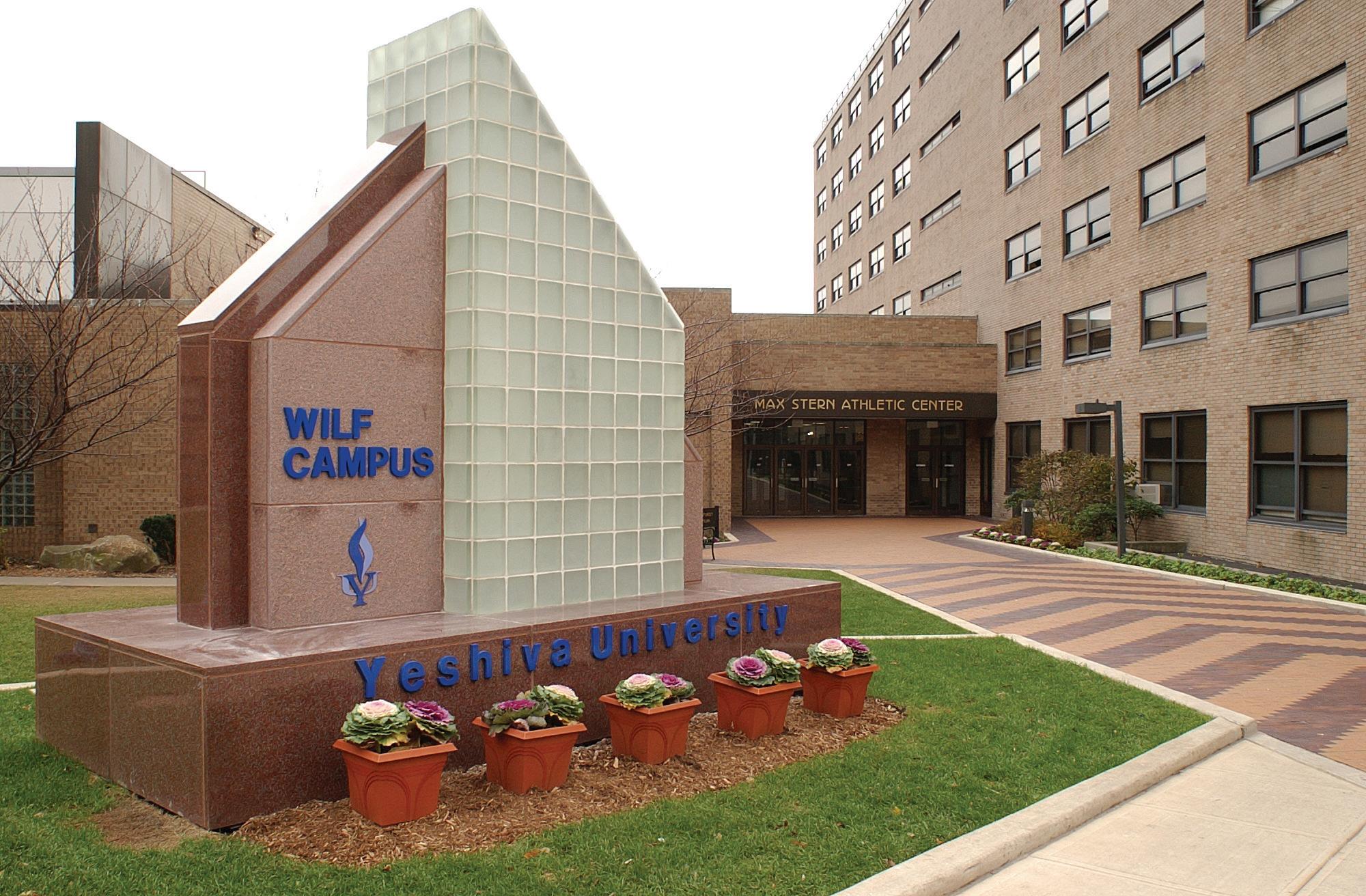
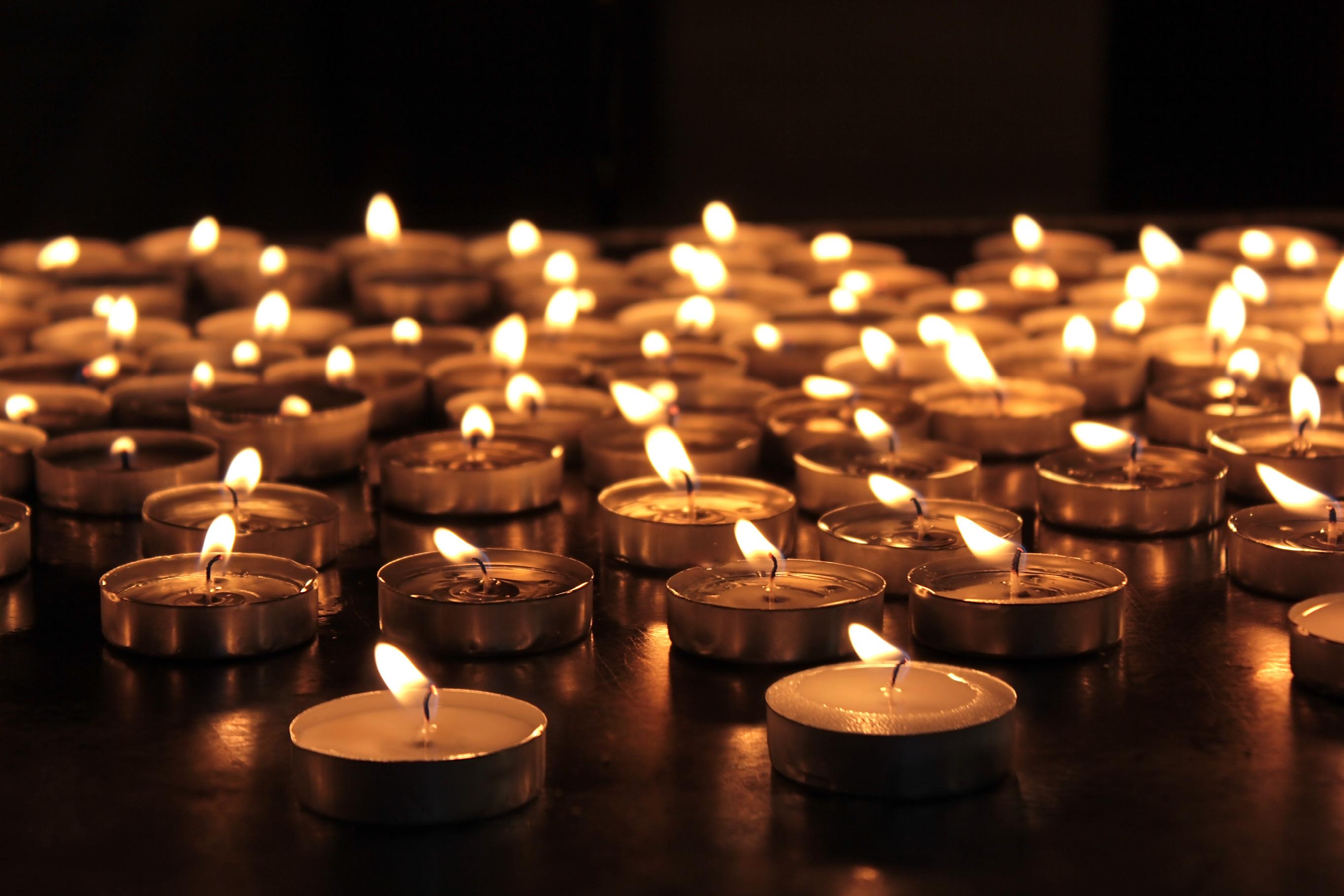

I thank you for your interest in the field of Holocaust and Genocide Studies that now has a home at one of the greatest Jewish institutions of higher learning in the world. Within the next few pages, we will familiarize you with the world of the Fish Center, with its outstanding and constantly growing student body, our stellar faculty, and the many programs we have o ered since our inception in the summer of 2019.
Interest in the Holocaust, the most cataclysmic event in the history of the Jewish people, of the modern era, and perhaps in the annals of humankind, is at an all-time high. While books, films, plays, lectures, and exhibits about the event continue to proliferate, anyone looking ahead will see a far less promising future of our field.
With the passing of thousands of Holocaust survivors, including those who built our museums and centers, our field is rapidly changing. Without those who can walk into classrooms, pull up their sleeves, show young men and women a number tattooed on their arms and exclaim, “I was there,” the field of Holocaust Studies loses its staunchest advocates and ambassadors. The Fish Center was created to fill this void.
We are fortunate to have an advocate in Mr. Emil Fish, who survived Bergen Belsen as a child. He recognized that Holocaust memory may fade if we don’t act quickly. His was the vision of a Holocaust and Genocide Studies Center at Yeshiva University. Although the Fish Center is not the first or the last such center, very few educational entities in the field have either the desire or capacity to o er a program steeped in the experiences of the Jewish people—in their agency, in their struggle to maintain their tradition, humanity, and dignity, in their despair and in their courage.
This is how the Fish Center stands alone in its work and in its M.A. program: we tell the story of the Holocaust through a Jewish lens. It is the trail we strive to blaze with our lectures, conferences, and our future flagship program – an advanced certificate in Holocaust education for both public and private middle and high school teachers. While this vision is grand and ambitious, formed and laid out during challenging times, I know that we can deliver on this promise. With YU’s world-class faculty and our earnest, talented, and dedicated students, the Fish Center is already playing a significant role in the field of Holocaust studies.
I thank you again for your interest in our mission. I invite you to learn more about how you can get involved. Consider applying to our Master’s degree program, take a class, or make a donation in support of the Fish Center. You can always reach me at shay.pilnik@yu.edu.
Cordially, DR. SHAY PILNIK Director, Fish Center
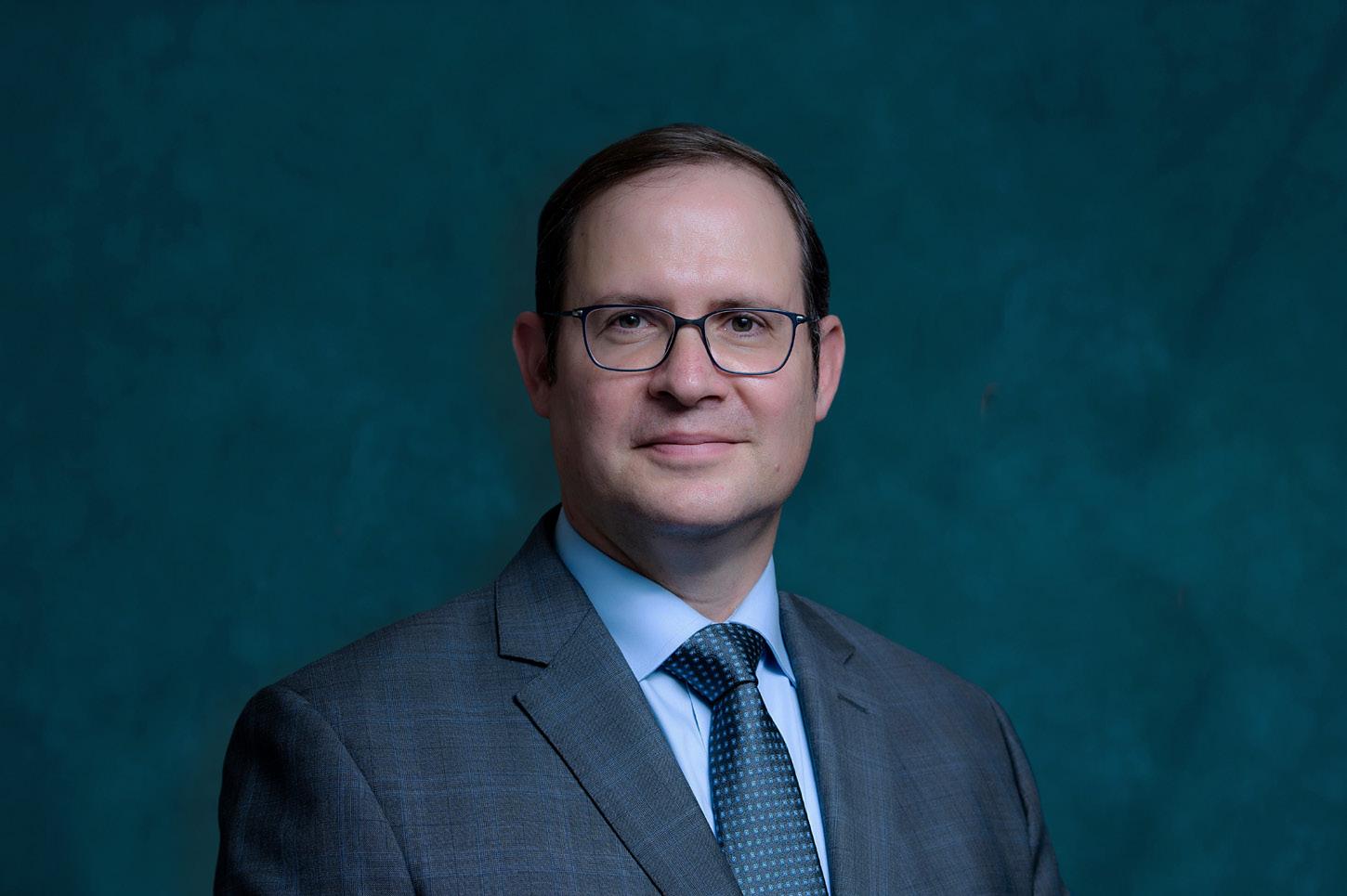
A Holocaust survivor from the small town of Bardejov in Slovakia. In 1945, he, his mother and sister were liberated from Bergen-Belsen. His family immigrated to Los Angeles in 1955.
As well as being the founder of the Fish Center, he is also the founder of Emil Fish Enterprises and Regency Park Senior Living, Inc. In 2009, Mr. Fish was appointed by President Obama to the United States Commission for the Preservation of America's Heritage Abroad, on which he still serves.
He currently resides in both Los Angeles and Philadelphia. Among his many achievements, he is most proud of his 3 children and 12 grandchildren.
The
The grandson of Holocaust survivors from Lithuania who immigrated to Israel from the USSR, Dr. Pilnik is the founding director of the Emil and Jenny A. Fish Center for Holocaust and Genocide Studies.

Prior to this role, he was the Executive Director of the Nathan and Esther Pelz Holocaust Education Resource Center (HERC) in Milwaukee. Pilnik earned his Ph.D. from the Jewish Theological Seminary in Modern Jewish Studies. His dissertation dealt with the commemoration of the Babi Yar Massacre in Soviet Russian and Yiddish literature.

“With the passing of thousands of Holocaust survivors, including those who built our museums and centers, our field is rapidly changing. Without those who can walk into classrooms, pull up their sleeves, show young men and women a number tattooed on their arms and exclaim, ‘I was there,’ the field of Holocaust Studies loses its staunchest advocates and ambassadors.
Fish Center was created to fill this void.”
“This is how the Fish Center stands alone in its work... we tell the story of the Holocaust through a Jewish lens.”
The MA Program of Holocaust and Genocide Studies at Yeshiva University o ers an unparalleled investigation of the Holocaust of European Jewry.
By drawing from a broad range of disciplines, it presents the Holocaust as an event that a ected all aspects of the human experience. The program focuses on the Shoah — the murder of six million Jews by Nazi Germany and its collaboratorsand o ers an exploration of this watershed event, unique in the history of humankind.
The MA program o ers the study of the Shoah as a stand-alone subject and also places it in the context of other genocides that have occurred since the early 20th century.
The Fish Center is privileged to utilize the resources and faculty in one of the world’s premier Jewish institutions for higher education.
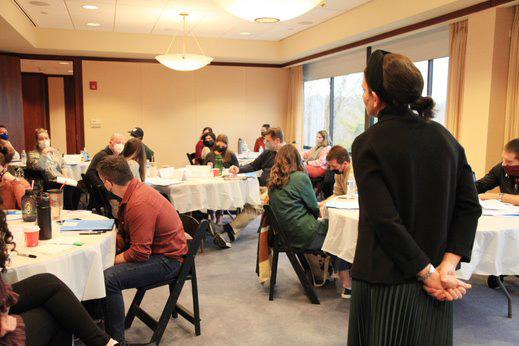
The MA program is registered by the New York State Education Department and meets its requirements.
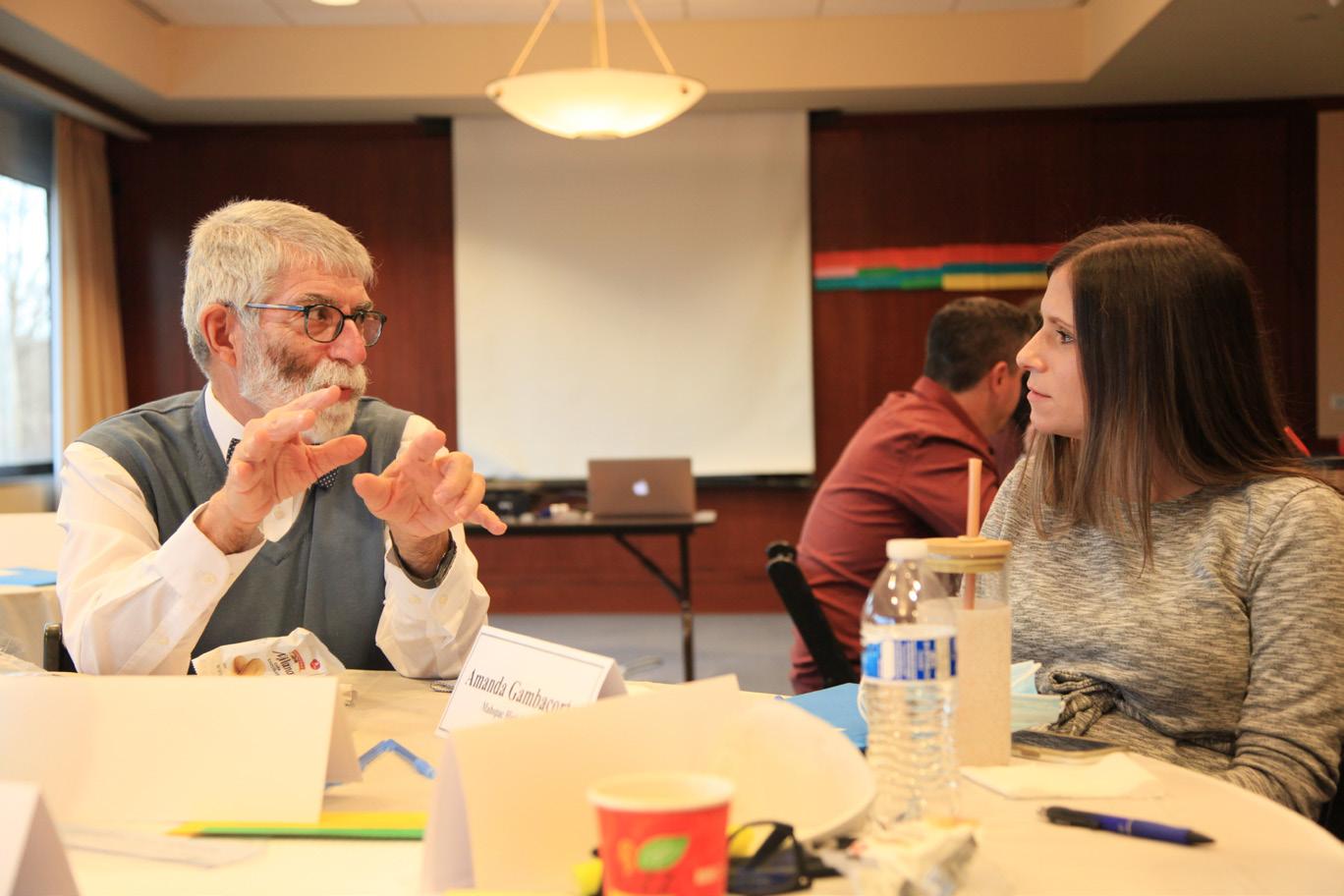
The Fish Center prides itself on its diversity of students. We strive to cater to a multitude of time zones and schedules by o ering both day and night classes and personalized thesis coursework.
•30+ unique courses o ered to date
•14 courses o ered per year
•Synchronous and Asynchronous classes
•Partnership course with Vilnius University
• Interdisciplinary instruction model
A principal focus of the fellowship program is to fulfill our mission – to build the next generation of leaders in the field Holocaust and Genocide studies.
Equipping students with the knowledge and practical skills that both Holocaust educators and lay leaders in the field must have at their disposal, the fellowship consists of three streams:
• Non-profit Management
• Public Lectures
• Special Projects and Productions
30 Credits for Completion
Full-time (complete in 18 months)
Part-time (complete in up to 5 years)
Online Courses Available
Application Requirements
3.0 Overall GPA
Bachelor’s Degree (from an accredited university/college)
Personal Statement
Two Letters of Recommendation
Completion of TOEFL or IELTS score Interview with Fish Center sta
In 23 states in the U.S., educators are mandated to teach about the Holocaust and antisemitism. Although this is a positive growth in the field of Holocaust and genocide education... They often have few or no resources to do it well.
1 in 4 American Jews has been targeted by antisemitism over the past year, including 17% who were subjected to antisemitic remarks in person and 12% who experienced antisemitism online or on social media.
1 in 4 also said their Jewish institutions have been the targets of antisemitism over the past 5 years.
Visual History Archive , a collection of audiovisual interviews comprising 54,000 eyewitness testimonies of witnesses and survivors of the Holocaust, as well as genocides in Nanjing, Rwanda, Armenia, Guatemala, and Cambodia.
Exploring the broad range of activities of Jewish individuals, groups, and institutions in the face of Nazi persecution and mass murder through a number of lectures from esteemed notables in the field of Holocaust and Genocide Studies.

Lecturers include: Esther Farbstein, David Fishman, Samuel Kassow, Joshua Zimmerman, Havi Dreifuss, Ori Soltes, Gershon Greenberg, Jacob J. Schecter, and Joshua Karlip. Premiered Spring 2021.
Lectures have amassed over 2000 views.
On Sunday, March 13, 2022, almost 1,200 participants had the privilege of joining a meeting with Ruslan Kavatsiuk, Deputy CEO of the Babyn Yar Holocaust Memorial and Natan Sharansky (born in Ukraine), Chairman of the Supervisory Board of the Babyn Yar Holocaust Memorial Center.
An outstanding opportunity to listen to a live, firsthand account of what is happening in the Ukraine today, the history and current situation at the Babi Yar Memorial and its future.
The event has since been viewed 4,600+ times.
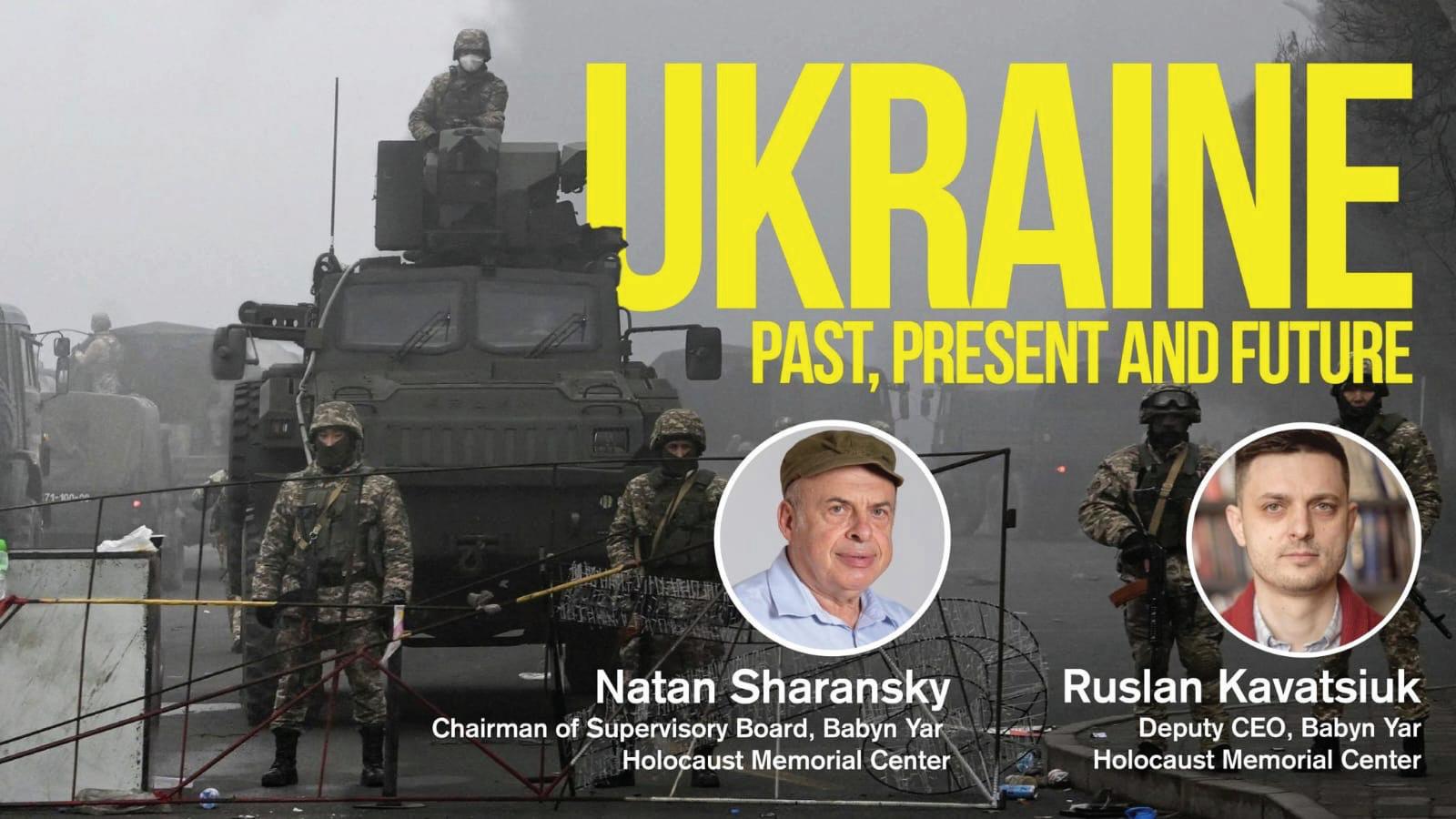
Holocaust Education in Times of Uncertainty is a series of live interviews with innovative leaders in the field. Designed for those who teach the subject and those who care deeply about it, these conversations are highly relevant to the present times of civil unrest, social tensions, rising antisemitism, and uncertainty.
Moderated by Dr Shay Pilnik. Streamed Summer 2020A series of live Zoom lectures exploring the Holocaust from an interdisciplinary angle, viewing it as a cultural phenomenon that a ects our present moment, not only as a past historical event. Lecturers have included Dr. Katarzyna Person, Dr. Beata Schulman, author Faris Cassell, and Yitzchak Mais. Produced by Sari Sheinfeld (’23).
Lecturers include: Dr. Katarzyna Person, Dr. Beata Schulman, Faris Cassell, and Yitzchak Mais. Streamed Spring 2022.

Holocaust Remembrance Around the World is a fascinating monthly video series focused on individuals who are shaping and reshaping Holocaust memory. Our series has recognized passionate and active educators in far-flung and unexpected countries such as Japan, Chile, the UAE, Rwanda, and others. Produced by Lois Roman (’22).

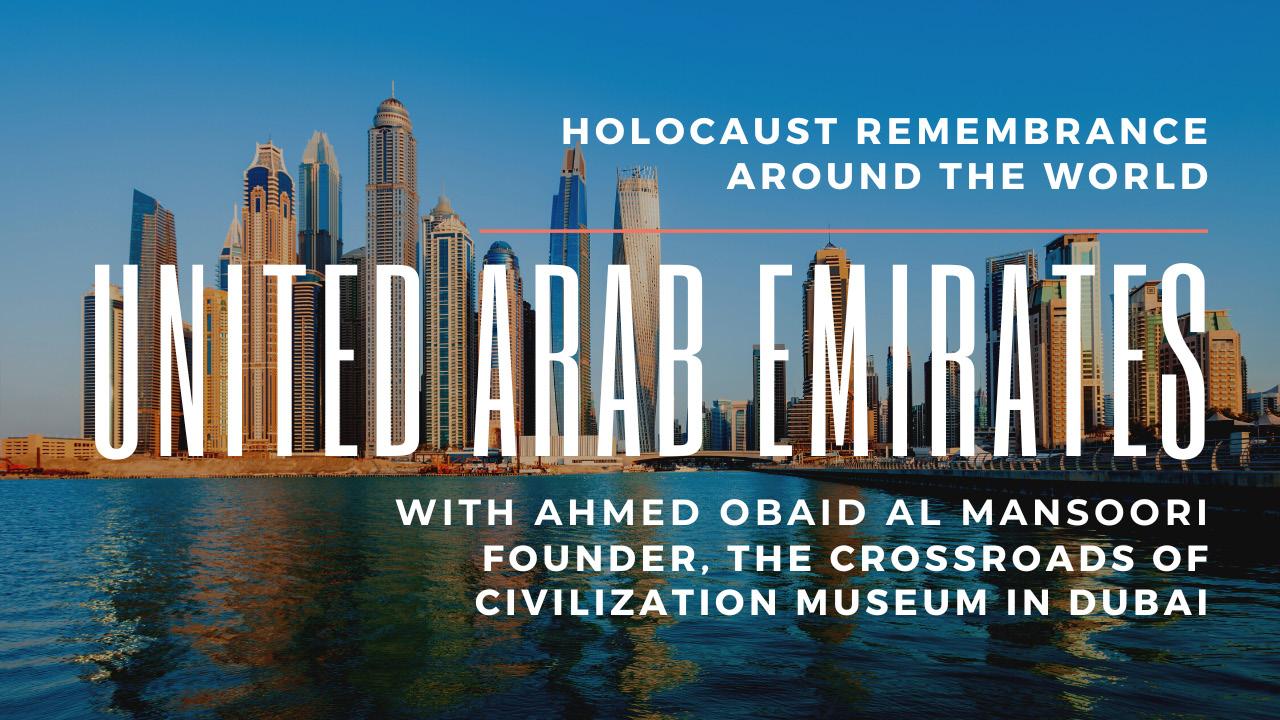
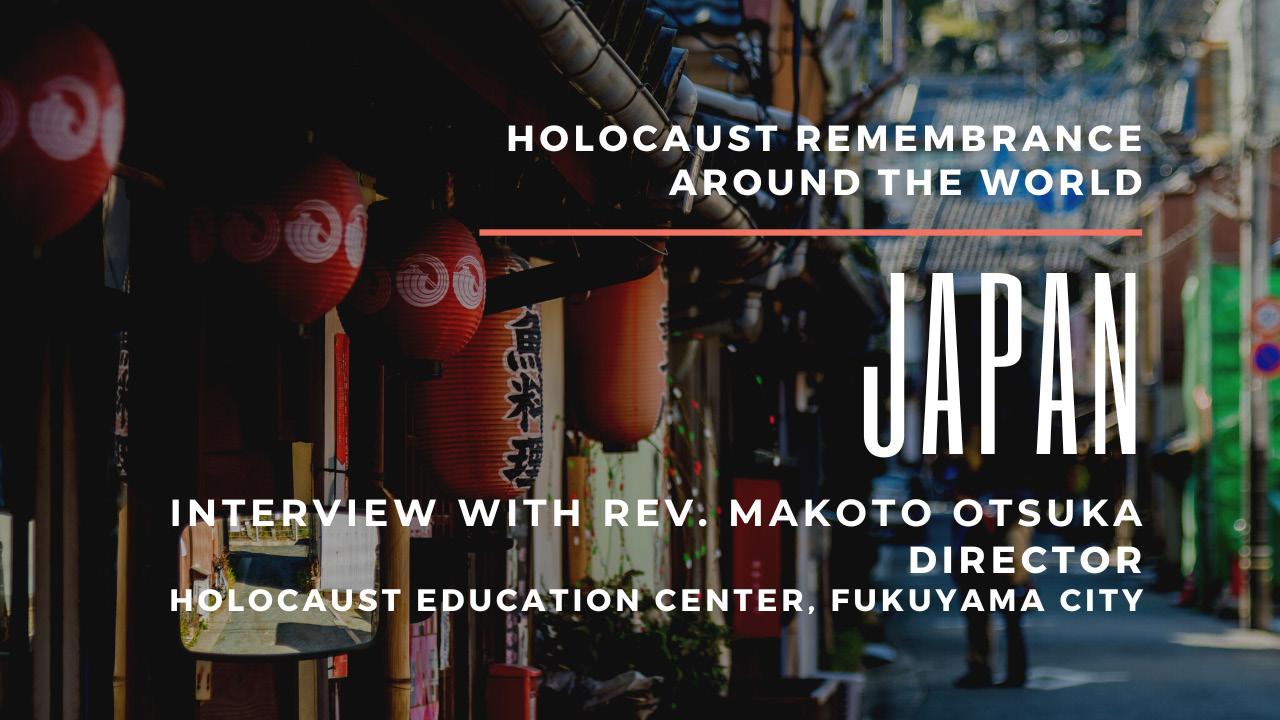
Two Seasons. Premiered 2021–2022
17+ countries represented:
France U.S.A Canada
Lithuania Guatemala China Accessible Anywhere 10
Mexico Rwanda Chile 10000+ VIEWS ON 49 VIDEOS 200+ VIEWS PER VIDEO 600+ FOLLOWERS COLLECTIVELY


Japan South Africa And More!
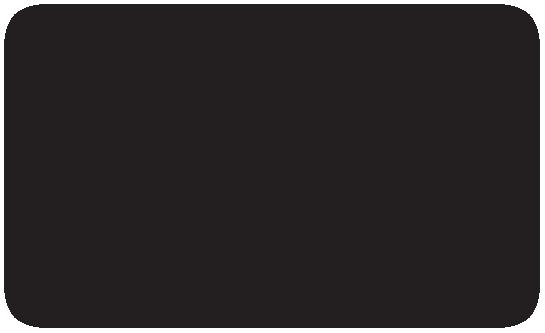
The Fish Center is excited to announce our new Advanced Certificate program, designed for teachers in grades 5-12, librarians, school administra tors, and all those interested in exploring effective, age-appropriate methods and materials for teaching about the Holocaust.
The Advanced Certificate will enable holders to serve as “turn-key trainers” in their schools and districts to help colleagues mandated to teach about this watershed do their best possible work.
• Taught by scholars from the US, Canada, and Israel
• Modules will address the Shoah in a variety of disciplines
Dr. Karen Shawn is the Director of Educational Outreach at the Fish Center, the founding editor of PRISM: An Interdisciplinary Journal for Holocaust Educators , and founder of the Holocaust Educators’ Consortium.
She has lectured and written extensively on Holocaust education and is the author of the widely-used texts The End of Innocence: Anne Frank and the Holocaust; The Call of Memory: Learning about the Holocaust Through Narrative: An Anthology; and a companion Teachers’ Guide.
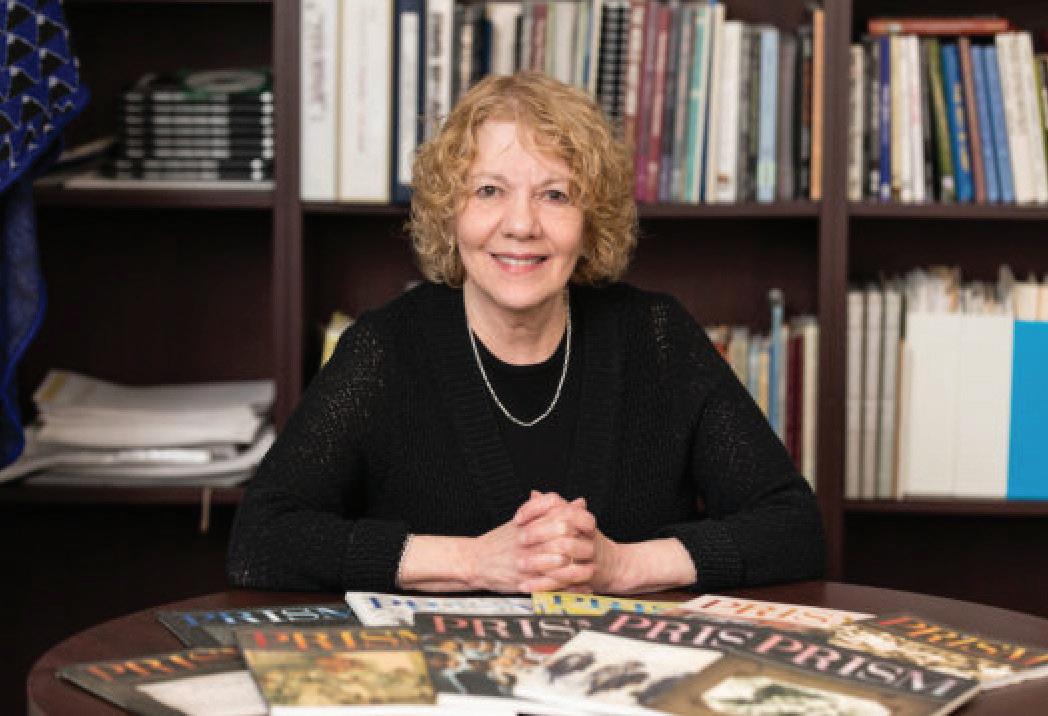
September 30, 20 21
Holocaust & Human Rights Education Center partnership White Plains, NY December 16, 2021
Holocaust Rescuers Workshop presented Cleveland, OH; 22 Educators June 22, 2022
Milwaukee Holocaust Education and Resource Center partnership Milwaukee, WI August 11, 2022



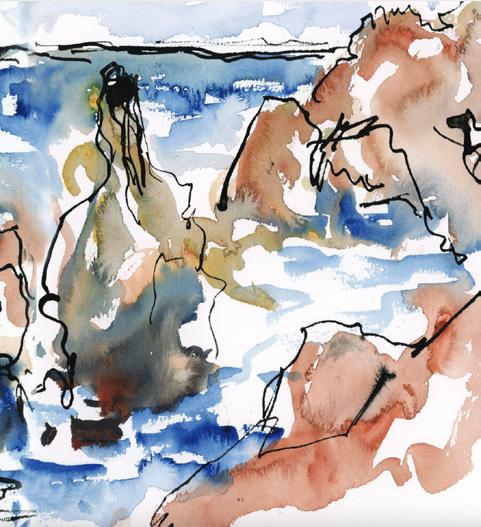
An initiative created and edited by Dr. Karen Shawn and requested by readers in some 45 countries and in every state in America, the journal is both a co ee-table treasure and an important classroom resource for students of the Holocaust in grades 8—adult. The Center is excited to announce that our next publication will be going “green,” with a highresolution download option available to all readers outside of the US.
‘I Could Not Heal You’, The 2022 issue of PRISM was graced by work that grew out of a writing workshop Dr. Shawn conducted for members of the Second Generation. Another workshop will be running this year, and we look forward to gathering more poetry and short narratives from those who have both their parents' and their own stories to tell about the Holocaust and its intergenerational e ects and echoes
If you would like to purchase a copy of the journal or are interested in learning more about the Fish Center, do not hesitate to reach our o ce
The Fish Center partnered with the Crossroads of Civilization Museum in Dubai (the capital city of the Emirate of Dubai) for a special event commemorating International Holocaust Remembrance day on January 27, 2022, watched by 100 guests in attendance and live-streamed to hundreds more from all over the world.

The program included a testimonial film of Holocaust survivor Emil Fish, created by Names Not Numbers, and a panel discussion about Holocaust education in the 21st century that was moderated by Dr. Pilnik.
The panelists included Emil Fish; Ahmed Obaid Al Mansoori, founder of the museum; and Yael Grafy, Chief Operating O cer and Curator of the Holocaust exhibition in the museum.
Florida Holocaust Museum partnership established Keynote by Dr. Mordecai PaldielAs the last survivors bid us their final testimonies, and waves of antisemitic rhetoric ripple instantaneously through the digital age, there is no more pressing time to take up the mantle of Holocaust education than today. Using those very same methods of digital communication, The Emil A. and Jenny Fish Center at Yeshiva University has launched a remarkable program to teach, learn, and perpetuate the history and lessons of the seminal catastrophe of human creation of the 20th century, the Shoah. At the Fish Center world class scholarship and facilities give access to and empower students to take the next great step in their academic journey, while all the while maintaining a close and supportive community.
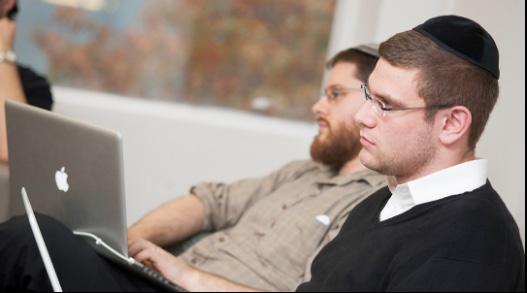
The Fish Center is blazing a path into the future by providing the tools, the instruction, and the foundation for the future of Holocaust education through a myriad of avenues of action and empowerment.
 Sari Sheinfeld, Class of 2023
Sari Sheinfeld, Class of 2023
For me, the Fish Center was a real-life case of serendipity and perfect timing. The perfect program at just the right moment for me. The program has exceeded my expectations in every way. Every class, bar none, has been exceptional. The professors are not only real scholars but also wonderful human beings, from whom I have learned so much. My fellow Fish students are individuals that I genuinely care about and deeply respect. I am truly grateful to have this opportunity which has both challenged me and enriched me in so many ways.
Ida Plotzker, Class of 2023The sta at Fish Center have made me feel incredibly welcome. Communication and the feeling of inclusion can be a challenge living across the country, yet the distance has not impacted either. It is obvious how much they care about their students.
Kali CusimanoThe Fish Center’s MA program has not only provided me with an outstanding community of scholars and students to learn with, but has also given me hope that in a world plagued with the darkness of anti-Semitism and Holocaust denial, there is a new cadre of well-trained educators who are prepared to counter that darkness with the light of knowledge and truth.

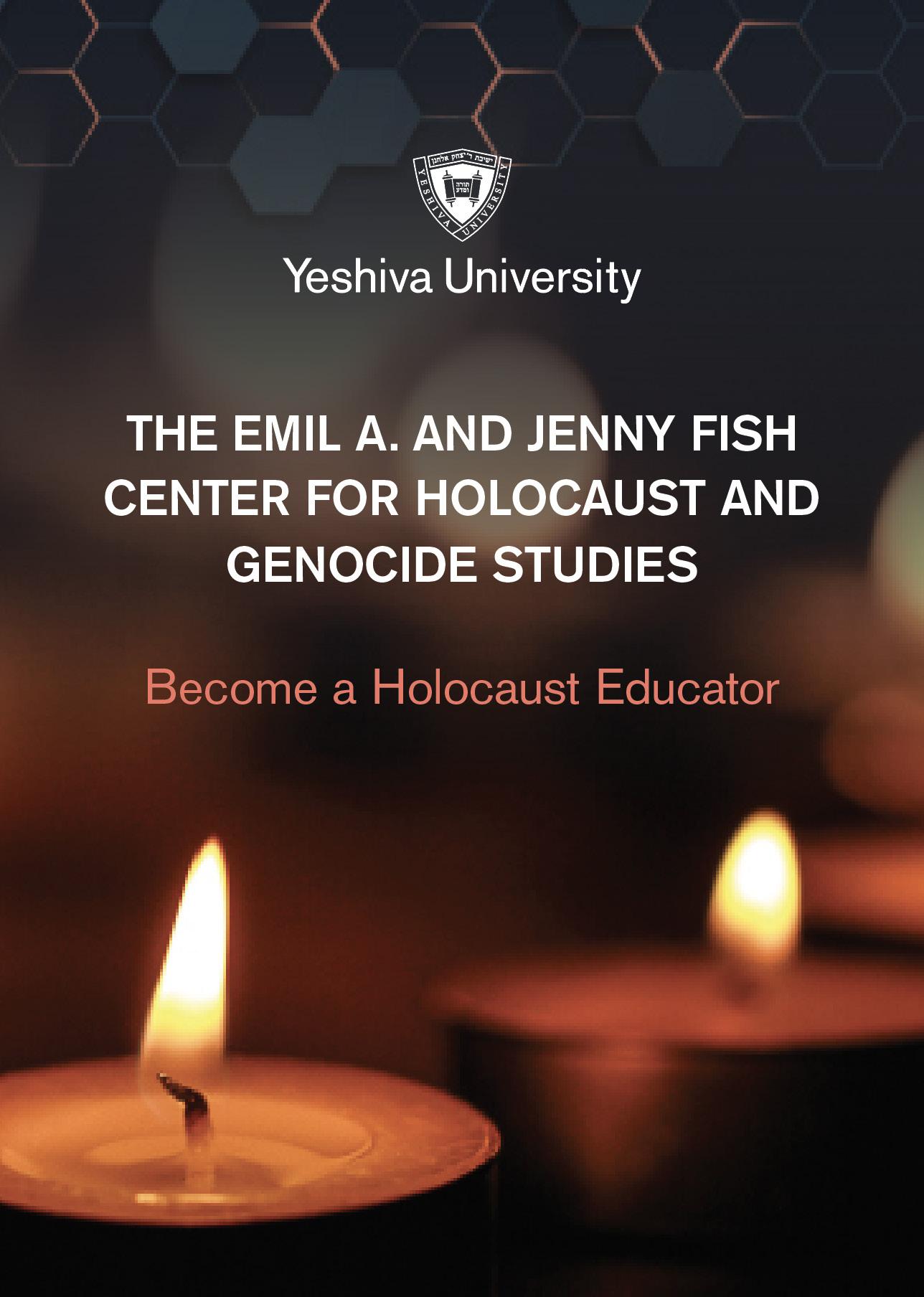 Rabbi Daniel Bouskila
Rabbi Daniel Bouskila
As someone nearing retirement from my medical career, I always had hoped to continue the speaking engagements that my parents engaged in regarding their Holocaust experiences. Studying at the Fish Center has given me both knowledge and inspiration to attempt to honor my parents and hopefully inspire my children to continue this important work.
Dr.David Garfunkel
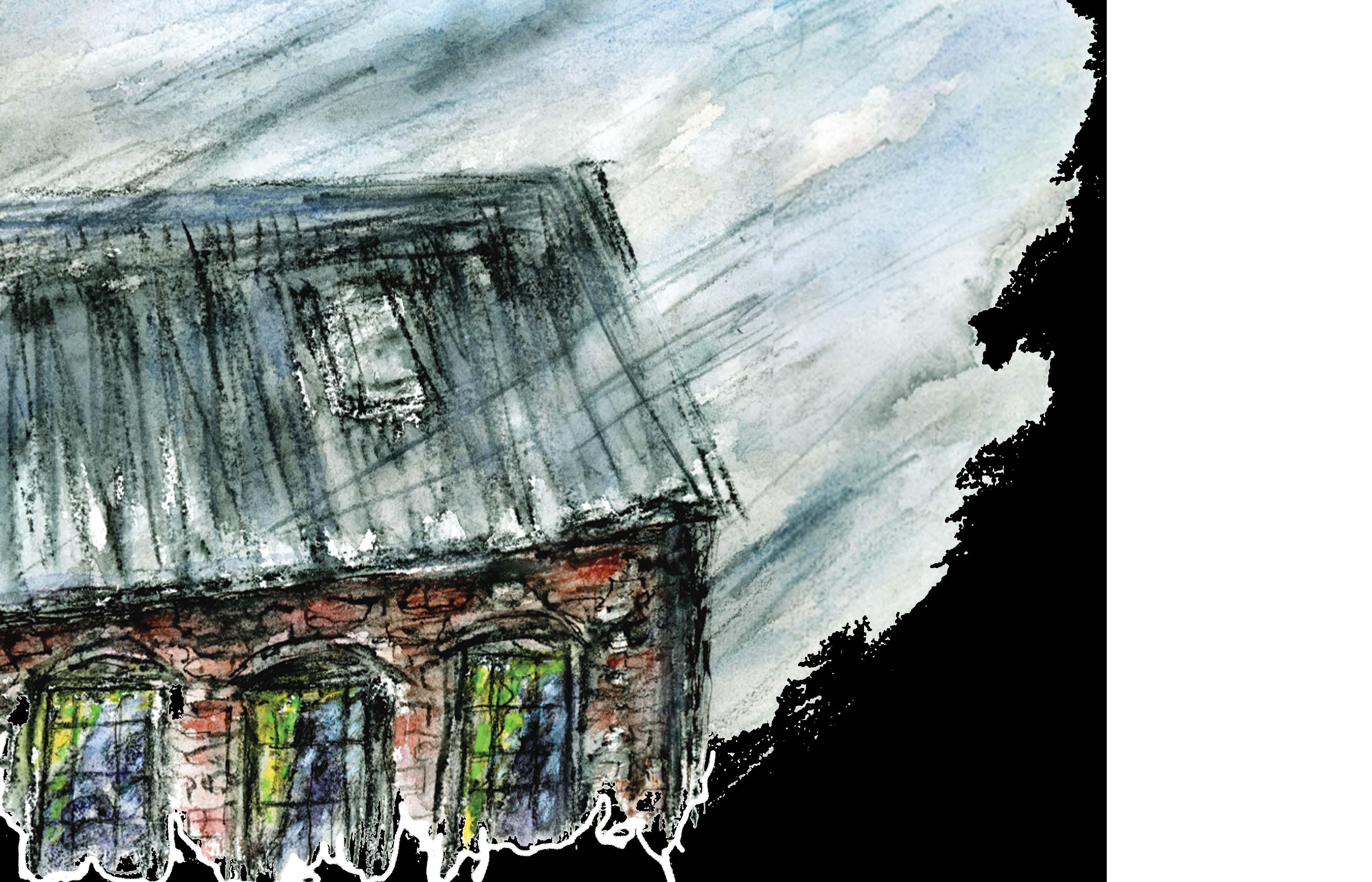 Artwork by Nancy Patz Featured in 'I Could Not Heal You,' the 2022 edition of PRISM: An Interdisciplinary Journal for Holocaust Educators
Artwork by Nancy Patz Featured in 'I Could Not Heal You,' the 2022 edition of PRISM: An Interdisciplinary Journal for Holocaust Educators
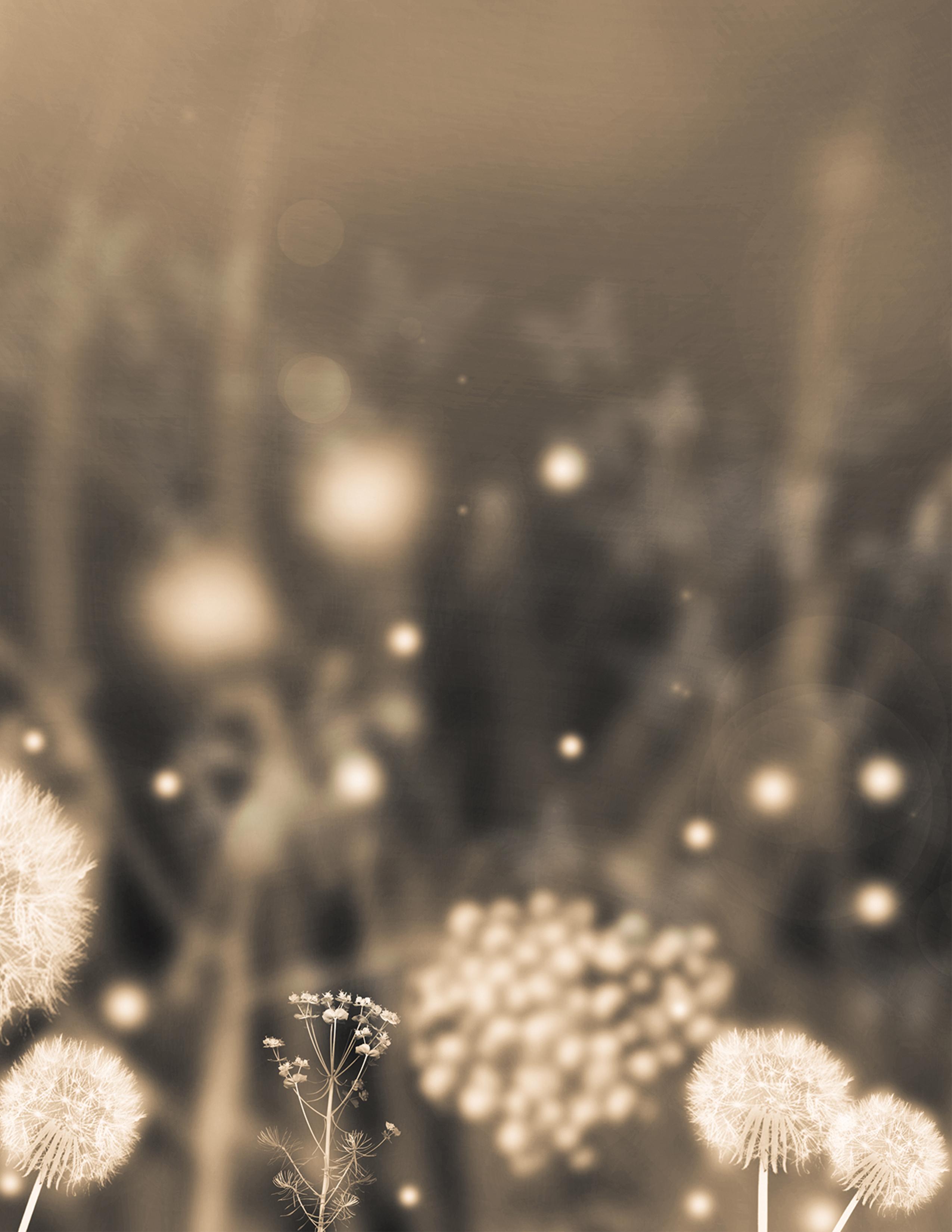
Survivors are passing. Holocaust distortion is growing.
The Emil A. & Jenny Fish Center for Holocaust & Genocide Studies is educating the future.
Who is teaching the next generation about the Holocaust?